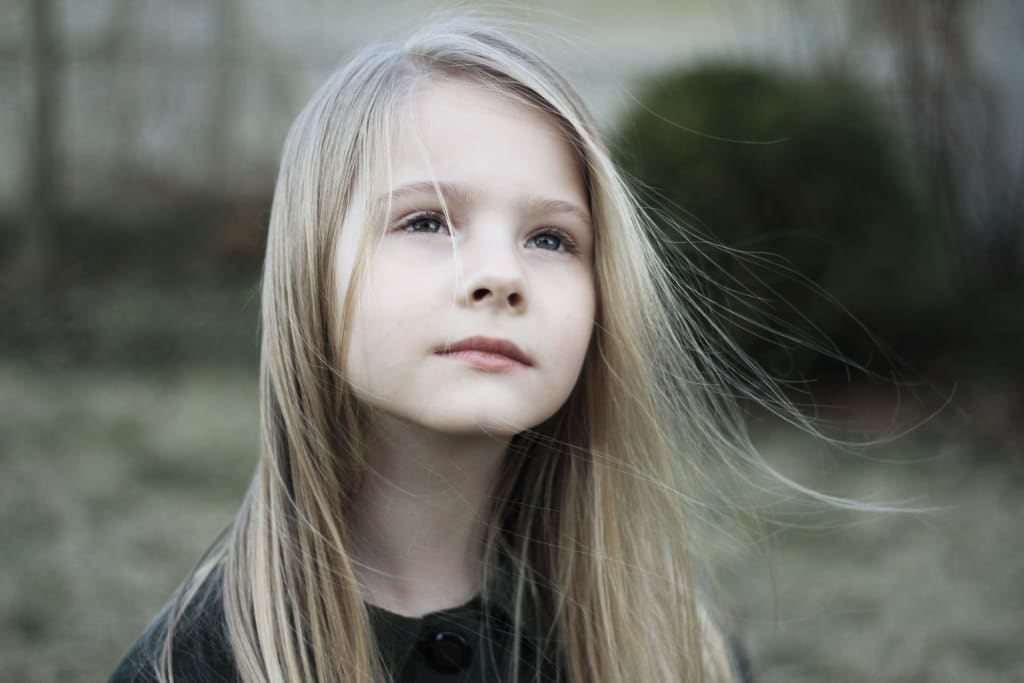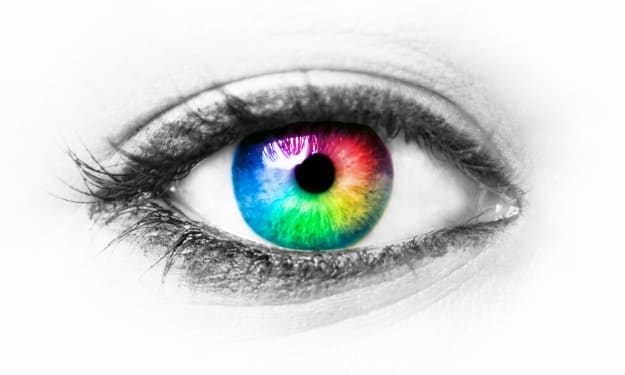
Dear Mother,
Your youngest daughter gets called to the school office one afternoon and sits down with some people from Child Services. In a panic, she denies what she has been whispering to me for weeks. “I’m not suicidal!” she insists, flushing with fear and embarrassment. Though the truth is probably written somewhere in the vivid blue of her frightened eyes, the officials accept the lies. Other officials come to the place you are squatting—like rats holed up together: multiple families in a tiny, filthy apartment—and interview the children in front of their abusers. The threat in the abuser’s eyes is enough to stop the children from speaking truth. “We have not been hit,” they deflect. “We are well-fed,” they exaggerate. “We are happy,” they outright lie.
Let’s slide backwards. Remember, several weeks before this, when I spoke to you on the porch. When I said of my sister, “She’s really depressed” and you flatly denied it? “She is not depressed! If she was depressed, I would know it! I’m depressed!” Always, the narrative circles back to you. Your pain outshines others’ pains. Your experiences must be the supreme example of all bad things. Beside the gaseous plasmatic explosion of your trauma, my sister’s sputtering candle does not even register to you. “She told me she’s depressed,” I respond, “and I chose to err on the side of the child.”
Backwards further now. Remember when you called me in a rage? This was about a different sister, though interestingly at the same tender teenaged time of life. She had insulted you. She had cursed at you. She had cursed at her step-father. You could not deal. A tearful plea results in me driving over an hour to pick her up. Unsure how to talk with her, I park once and get out to look at the landscapes at midnight. Her fearful imagination convinces her that I am going to abandon her or something more sinister. When I return to the vehicle, she is in tears but cannot not tell me why she weeps. At my apartment, I tell her she will get some time to rest and be away from the struggles. I tell her she will be safe with me. When I go to work the next day, certain all she needs is rest, my roommate heaps a bunch of tasks and threats on her. Midday, your champion—my brother—calls me at work, in a deeper rage. He accuses me of child abuse and spirits my sister away while I wait tables with tears rolling down my cheeks. He said I was neglectful and abusive, that I had threatened my sister, that I had given her a bunch of chores to do. He said it was a mistake to ever trust me. When I call to talk to you, I get more of the same. Even though I had done nothing—except perhaps be ignorant of the abusive nature of my roommate—you refuse to believe I had not harmed my sister. You cry that I am a villain. And you tell me “I have to err on the side of the child.”
Let’s go back further now. Slide back to when I was still living under your roof. Now I am the tender teenaged girl on a dark night with a knife in my sights. Tears stream down my face. I am trying to get up the courage to end my life. The weight of the world is on my shoulders. You’re asleep. You’re always asleep. While the burden of your responsibilities fall to me, you drop into the escape of slumber. Pieces of me erode every day. I am ground into dust. I am determined to return to dust. The knife glints in moonlight through the tiny kitchen window. My hand trembles, but the knife is my only escape. Until the baby cries. Your baby. Now my baby. He cries in his room, calls out—not for you—for me. The knife clatters into the sink and I rush away from it. My feet take me where my mind did not want to go: toward responsibilities that should never have been mine. I push my feelings down. I bury the depression as I take the baby into my arms and soothe him in the middle of the night. And when I mention the next morning that I think I am maybe depressed—downplaying my devastation for your behalf—you scoff and practically roll your eyes. “You are not depressed. I am depressed.” The narrative always cycles back to you.
Step backward with me again. Now, I am a baby—little more than a baby. I am held down in a closet and assaulted. I cover my face with my hands. I know it will not last long. I know it will end soon. I know because this is not the first time. And I know it will not be the last time. This time, though I am scared and broken every time, this time speaks loudly to me. You come in the room. He shoves me away. You see only a flurry of movement. “What are you doing?” you accuse us. Well, not us—me. Though I am the child—your child—your accusations are for me. “She took off her panties,” he laughs and backs away, pointing at me. “She hid in the closet and called me to look at her.” Your face goes from confused to horrified. You screech my name. You force clothing onto my body. You sit me in a naughty corner. And though you do not hit me, your words smack hard. “Good girls don’t do this!” I cry and beg you to listen. “I didn’t—” I try. “It wasn’t me—” I insist. “Please?” I whisper. But at no time in my childhood does anyone err on the side of the child.
So, I stop talking. I am in free-fall. I am in so many pieces that I will not even find them all until I am a grown adult writing letters and processing trauma with a licensed therapist.
Let’s resume our narrative at the end: your youngest daughter is called to the school office one afternoon to talk to people from Child Services. I can tell you now, I am the person who reported you for child abuse and neglect. I am the reason they showed up and questioned your parenting. But you know that part. You figured out that part. You know it was me.
Here’s my confession (the part you do not know): I’m not sorry. This narrative will no longer circle back to you. The story is mine now.
Sincerely Trying to Break the Cycle,
One of your abused daughters
About the Creator
Nichole M. Willden
Nichole M. Willden is a poet, writer, and author of The Guild series. A survivor of indoctrination and abuse, Nichole has spent decades writing fiction that sizzles with themes of enslavement, hope, and resilience.






Comments
There are no comments for this story
Be the first to respond and start the conversation.